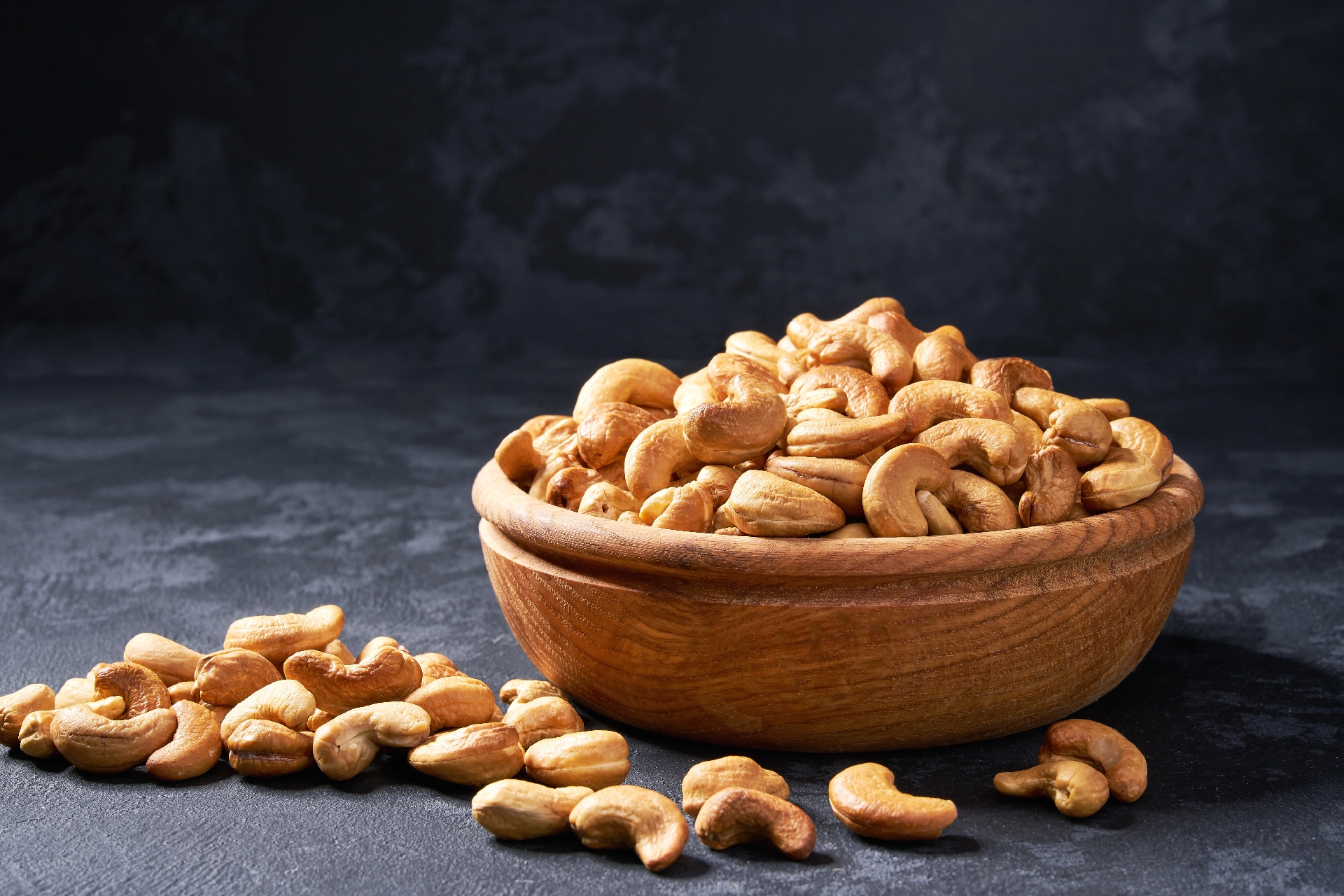General Physician | 11 min read
Vitamin E: Overview, Benefits, Uses, Role and Dosage
Medically reviewed by
Table of Content
Key Takeaways
- Vitamin E is a group of eight fat-soluble compounds
- You can apply Vitamin E for skin-related issues
- Vitamin E capsules provide a lot of health benefits
Be it for good skin, strong hair, or overall immunity, there’s one ingredient always talked about! Vitamin E is an antioxidant with a group of eight fat-soluble compounds. These include tocopherols and tocotrienols. Alpha-tocopherol is a form of it that meets our dietary needs. You may already be using various products that contain vitamin E for skin and hair. This fat-soluble vitamin is key to strong immunity as it plays the role of an antioxidant. It removes free radicals that damage cells and prevents the formation of clots in the arteries of your heart [1].
Vitamin E is stored in the liver and fatty tissues in your body and used when required. There are many vitamin E capsules and supplements that you can take as per your doctor’s recommendation. Read on to know about its best sources and the role of vitamin E in improving your immunity.
What is Vitamin E?
Vitamin E is a fat-soluble vitamin. It can be found in various foods, such as cereals, vegetable oils, meat, chicken, eggs, and fruits.
Vitamin E, an essential vitamin, is needed for the healthy operation of numerous organs in the body. It also functions as an antioxidant. RRR-alpha-tocopherol, a form of vitamin E that naturally occurs in foods, differs from the synthetic vitamin E found in supplements.
Although vitamin E insufficiency is uncommon, it can happen in adults with specific genetic abnormalities and in preterm infants who are very underweight. Vitamin E is used to treat this condition. There are other more ailments for which Vitamin E is used; however, many of the other uses of Vitamin E lack solid scientific support.
 Additional Read: Vitamin Deficiency Tests
Additional Read: Vitamin Deficiency Tests Sources of Vitamin E
Vitamin E is found in a variety of foods. These include nuts and seeds, certain seafoods, cereal products, and oils. Vitamin E is present in plant oils such as sunflower, soya, corn, olive and vegetable oil.
Benefits of Vitamin E
Vitamin E for Skin
Vitamin E is an integral part of your skin’s antioxidant defences. It primarily protects against UV radiations and other free radicals. Vitamin E levels in the body decrease with
age. However, the oil derived from vitamin E is quite versatile. You can apply vitamin E oil to the skin or take vitamin E capsules. This helps rejuvenate the skin as well as the overall body. The anti-inflammatory properties of vitamin E prevent damage [2].
Studies suggest that vitamin E helps in healing wounds too [3]. Apart from this, people use vitamin E for skin whitening and vitamin E capsules for pimples. Vitamin E can moisturize the skin and prevent sunburns. Due to its moisturizing properties, it can provide relief from itching caused by dry skin. It reduces the itching, dryness, and flaking linked with eczema.
Vitamin E for Hair
Vitamin E can prevent hair loss, improve blood circulation in the scalp, add shine to your hair, and support a healthy scalp. A study on people with hair loss found that vitamin E improves hair growth [4]. The antioxidant properties of vitamin E help reduce oxidative stress in the scalp. This vitamin balances oil production by forming a protective barrier on the surface of the skin. Vitamin E supplements like Evion 400 capsules help to improve the quality and texture of hair.
Vitamin E for Face
Due to multiple benefits, Vitamin E can be used for anti-aging treatment. Most beauty mask treatments contain vitamin E because of its skin-softening and anti-aging benefits. Vitamin E is often paired with vitamin C to prepare beauty masks.
You can prepare a face mask by adding vitamin E to almond oil along with drops of lemon juice, honey, and avocado. Leave the mixture on your face for 10-20 minutes for clean, bright, and soft facial skin. You can also take vitamin E oral supplements for glowing skin that makes you look younger. Vitamin E can treat hyperpigmentation [5], as well as prevent aging and wrinkles on your face.
Vitamin E for Lips
Using vitamin E on dry lips helps bring new cells to the surface quickly since it promotes cell regeneration and turnover. It can be used to relieve dry lips. The thick and oily consistency of vitamin E can prevent irritation. Apply vitamin E to your lips as it boosts blood circulation and makes your lips softer.
Vitamin E for Dark Circles
Several factors including lack of sleep, allergies, or genetics lead to the formation of dark circles under the eyes. A study to test a gel containing vitamin E concluded that it was
effective in reducing dark circles and wrinkles of the lower eyelids [6]. You can use vitamin E capsules, oil, or cream to treat dark circles. To use the vitamin E oil, apply 1-2 drops to a clean finger and dab it onto your under-eye area.
Role of Vitamin E in Immunity
Vitamin E is an antioxidant that can protect polyunsaturated fatty acids from oxidation [7]. It acts as the first line of defense and is vital for the normal functioning of immune cells. Apart from this, its antioxidant properties can protect you against cancer and heart diseases. Vitamin E supplements can significantly enhance both humoral and cell-mediated immune functions in humans [8].
Additional Read: Vitamins and Supplements to Boost Immune SystemUses of Vitamin E
It is a strong antioxidant.
A review in the Free Radical Research journal states that vitamin E's main function in our bodies is to scavenge free radicals [1]. Free radicals are unstable chemicals that are produced by the body's regular metabolic processes or brought into our bodies by outside factors, including air pollution, tobacco smoke, and sun exposure. They can raise our levels of oxidative stress, which can harm our cells and result in illness.
Vitamin E strengthens our immune systems while shielding our cells from oxidative harm through its potent antioxidant action. A review article in the Nutrients journal claims that vitamin E aids in controlling the generation and operation of a variety of white blood cells involved in infection defence [2]. Additionally, numerous studies have shown that vitamin E's antioxidant qualities can aid in the treatment of allergic illnesses [3].
It might maintain your skin healthy.
Most people are aware of vitamin E for its benefits for our skin. The Journal of Molecular Medicine reports that it protects against UV-induced photodamage and maintains the integrity of the skin's lipid components [4]. The effects of photoaging include the appearance of wrinkles, uneven skin tone, hyperpigmentation, and discolouration. Vitamin E may also offer defence against ailments including atopic eczema, vitiligo, and acne claims a meta-analysis written for the PLoS One publication.
It may delay the appearance of indications of ageing.
Vitamin E has been linked to improved bone metabolism and the prevention of osteoporosis, a frequent disease affecting the elderly population. Sarcopenia, a degenerative muscular disorder, is another obvious indication of ageing. Additionally, a review article in the Nutrition Research journal found that vitamin E can speed up muscle regeneration and prevent the loss of muscle mass and strength [5].
It could support better cardiovascular health.
Additionally, there is proof that vitamin E can enhance a few elements of cardiovascular health. Supplementing with vitamin E can considerably lower systolic blood pressure, according to a meta-analysis that was written up in the Journal of Human Hypertension. Vitamin can reduce the risk of developing atherosclerosis by regulating blood cholesterol levels and decreasing inflammation (the narrowing of the arteries due to the build-up of fatty plaques).
There is, however, no proof that vitamin E helps prevent cardiovascular disease or lower your risk of dying from it.
Vitamin E Dosage
The National Institutes of Health (NIH) states that adults' recommended daily amount (RDA) is 15 mg [6]. This quantity is also designated as vitamin E Daily Value (DV), which serves as a benchmark on the foods and dietary supplements labels.
Children's needs are lower, starting at 4 mg for babies and increasing to 11 mg from age 9 to 13, while breastfeeding women need more, 19 mg. Vitamin E has a 1,000 mg daily Tolerable Upper Intake Level (UL), which is the highest recommended intake.
Dosing
Vitamin E is a vital vitamin. Good sources of vitamin E include cereals, vegetable oils, meat, chicken, eggs, fruits, and wheat germ oil. The recommended dietary allowance (RDA) is the quantity that should be ingested each day. The recommended daily allowance (RDA) for adults is 15 mg (22 IU) of natural vitamin E (RRR-alpha-tocopherol), 15 mg (22 IU) during pregnancy, and 19 mg (28 IU) when nursing.
Remember that the dosages of vitamin E produced in the lab (all-rac-alpha-tocopherol) and those produced naturally (RRR-alpha-tocopherol) are calculated differently. Dosing a supplement may become unclear as a result. Until more is known about the dangers and advantages of these supplements, the American Heart Association advises getting your vitamin E from a healthy, well-balanced diet rather than from supplements.
Vitamin E Deficiency
Vitamin E deficiency is uncommon and typically results from diseases that prevent the body from adequately absorbing particular dietary fats. It may also be present in people with Crohn's disease, cystic fibrosis, premature babies, and low birth weight infants.
Vitamin E insufficiency symptoms include:
- Anaemia
- Skeletal myopathy
- Ataxia (balance and speech disorder)
- Peripheral neuropathy
- Retinopathy (an eye condition that can cause blindness)
- Immune deficiency
- Nerve injury
Vitamin E Precautions and Warnings
- When used orally, vitamin E is most likely safe for the majority of people when taken at levels lower than 1000 mg per day. This has the same amount of vitamin E as 1100 IU of synthetic vitamin E (all-rac-alpha-tocopherol) or 1500 IU of natural vitamin E (RRR-alpha-tocopherol). Higher doses carry a greater risk of adverse effects. Nausea, fatigue, headaches, and bleeding are possible side effects. Taking more than 1000 mg of vitamin E daily may be dangerous.
- When applied to the skin, vitamin E is most likely harmless for most people.
- Vitamin E may be hazardous when breathed. The use of e-cigarettes and other vaping devices that contain vitamin E acetate has been associated with severe lung damage in some consumers.
- Use of vitamin E during pregnancy may be safe when taken at the recommended daily dosage. During the first eight weeks of pregnancy, avoid using vitamin E supplements without first seeing your doctor. The infant could be harmed by it. The maximum daily allowance of vitamin E is 800 mg for women aged 14 to 18 and 1000 mg for women over the age of 18 during the later stages of pregnancy.
- While nursing, taking vitamin E orally in the recommended daily doses is probably safe. The highest recommended daily intake of vitamin E while breastfeeding is 800 mg for women aged 14 to 18 and 1000 mg for women over 18. Vitamin E may be dangerous when consumed in levels over the maximum advised quantity.
- Vitamin E is probably safe for children when taken orally. Children should not consume more vitamin E than the recommended daily maximum. These upper limits are 300 IU for children ages 1-3, 450 IU for kids ages 4-8, 900 IU for kids ages 9-13, and 1200 IU for kids ages 14-18.
- Vitamin E may aggravate bleeding disorders. Taking vitamin E supplements should be avoided if you have a bleeding disorder.
- Vitamin E may raise the chance of mortality in persons who have a history of heart disease. Anyone with a history of heart disease should avoid vitamin E dosages above 400 IU per day.
- People with diabetes may experience an increased risk of heart failure if they take vitamin E. Diabetes patients should refrain from consuming more vitamin E than 400 IU per day.
- Vitamin E may enhance the likelihood that head and neck cancer may return. Do not exceed 400 IU of vitamin E daily in supplement form.
- Those with osteoporosis occasionally utilise exercise to strengthen their fragile bones (osteoporosis). Exercise may have lessening effects on bone strength when combined with high vitamin C and vitamin E dosages.
- Vitamin E may raise the risk of developing prostate cancer. Although its effects on people with prostate cancer are unclear, vitamin E may worsen things.
Vitamin E Side Effects
Vitamin E is probably safe for most people when taken orally in quantities lower than 1000 mg daily. This is equivalent to 1500 IU of natural vitamin E (RRR-alpha-tocopherol) or 1100 IU of all-rac-alpha-tocopherol, a synthetic form of vitamin E. Higher doses carry a greater risk of adverse effects. Nausea, fatigue, headaches, and bleeding are possible side effects. Vitamin E may not be safe when consumed in dosages larger than 1000 mg per day.
Vitamin E is probably safe for the majority of people when applied topically.
Vitamin E might not be safe to breathe in. Some people have developed severe lung damage after using e-cigarettes or other vaping products that contain vitamin E acetate.
Although vitamin E capsules or supplements provide health benefits, talk to a health professional before you take one. Consult with the best doctors on Bajaj Finserv Health by booking a virtual or in-person appointment. Get the right advice with regards to vitamin E and its benefits. Start your journey towards better health today!
FAQ
What is vitamin E Good for?
Vitamin E is an important nutrient for eyesight, reproduction, and your blood, brain, and skin health. Additionally, vitamin E has antioxidant qualities.
Can I take vitamin E every day?
A balanced diet that is rich in variety should provide you with the recommended daily allowance of vitamin E. Avoid using excessive amounts of vitamin E supplements as this may be dangerous. It is unlikely to affect you if you use vitamin E supplements in doses of 540 mg (800 IU) or less each day.
Which foods are high in vitamin E?
Sunflower seeds, almonds, spinach, avocados, squash, kiwifruit, trout, shrimp, olive oil, wheat germ oil, and broccoli are a few examples of foods that are high in vitamin E.
What are the side effects of vitamin E?
The risk of side effects may rise while taking increasing amounts of vitamin E. Concerns have also been raised over the increased risk of death in those with poor health who take high dosages of vitamin E.
Does vitamin E affect the heart?
It has been suggested that vitamin E, a naturally occurring fat-soluble antioxidant, can be used to treat both primary and secondary protection against cardiovascular (CV) events. In middle-aged to older men and women, eating foods high in vitamin E has been linked to a lower risk of coronary heart disease.
References
- https://www.hsph.harvard.edu/nutritionsource/vitamin-e/
- https://lpi.oregonstate.edu/mic/health-disease/skin-health/vitamin-E
- https://www.ncbi.nlm.nih.gov/pmc/articles/PMC4976416/
- https://www.ncbi.nlm.nih.gov/pmc/articles/PMC3819075/
- https://www.aocd.org/page/Hyperpigmentation
- https://onlinelibrary.wiley.com/doi/abs/10.1111/j.1473-2130.2004.00070.x
- https://www.ncbi.nlm.nih.gov/pmc/articles/PMC6266234/
- https://www.sciencedirect.com/science/article/abs/pii/B9780123869609000083
- https://www.healthline.com/health/all-about-vitamin-e
- https://www.webmd.com/diet/supplement-guide-vitamin-e
- https://www.nhs.uk/conditions/vitamins-and-minerals/vitamin-e/
- https://www.healthline.com/health/vitamin-e-for-skin#vitamin-e
- https://www.medicalnewstoday.com/articles/318168#Ten-potential-benefits
- https://www.dailypioneer.com/2018/impact/how-to-apply-vitamin-e-capsules-on-to-the-skin-directly.html
- https://www.healthline.com/health/beauty-skin-care/vitamin-e-for-hair
- https://www.healthline.com/health/vitamin-e-for-face
- https://www.healthline.com/health/how-to-make-lips-pink#:~:text=Use%20vitamin%20E,cells%2C%20making%20your%20lips%20softer
- https://www.healthline.com/health/beauty-skin-care/vitamin-e-for-dark-circles#does-it-work
- https://www.sciencedirect.com/science/article/abs/pii/B9780123869609000083
- https://www.ncbi.nlm.nih.gov/pmc/articles/PMC6266234/,
Disclaimer
Please note that this article is solely meant for informational purposes and Bajaj Finserv Health Limited (“BFHL”) does not shoulder any responsibility of the views/advice/information expressed/given by the writer/reviewer/originator. This article should not be considered as a substitute for any medical advice, diagnosis or treatment. Always consult with your trusted physician/qualified healthcare professional to evaluate your medical condition. The above article has been reviewed by a qualified doctor and BFHL is not responsible for any damages for any information or services provided by any third party.






